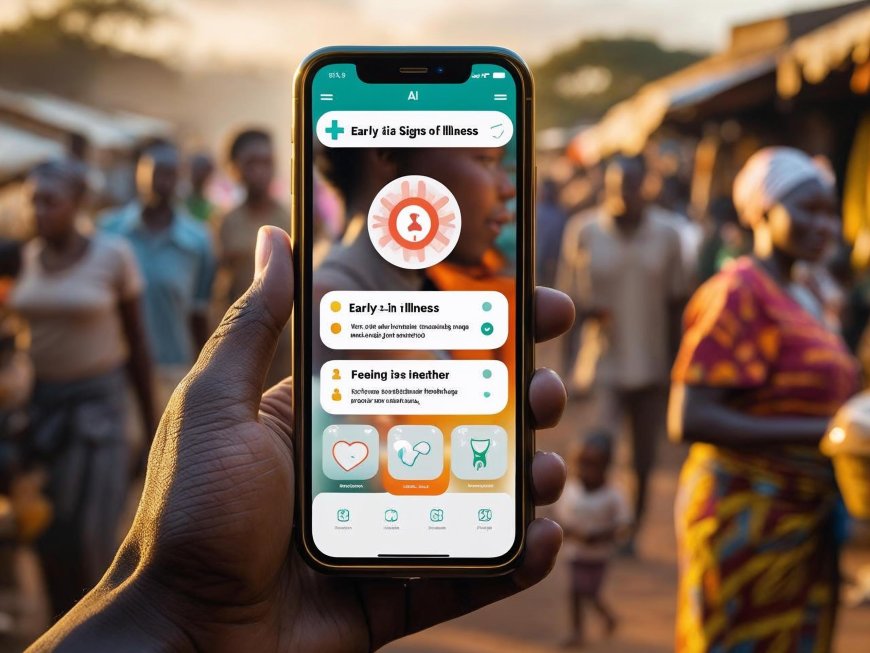How AI Is Revolutionizing Symptom Tracking in Africa: When Your Phone Knows You're Sick Before You Do
Discover how artificial intelligence is transforming symptom tracking in Africa—from WhatsApp bots to smart health apps that understand malaria better than your village nurse. Explore the promise, power, and pitfalls of AI for healthcare in African communities.

"When the roots of a tree begin to decay, it spreads death to the branches." – Nigerian proverb
In 2002, if you had a headache in rural Ghana, you’d drink ginger water, say a prayer, and hope for the best. Fast forward to 2025 and—believe it or not—your smartphone might know you’re sick before your grandmother’s herbal concoction has even finished boiling.
Welcome to the brave new world of AI-powered symptom tracking, where artificial intelligence is helping ordinary Africans monitor their health, predict illness, and seek care earlier—all with a few taps on their phones.
Let’s break it down, no PhD in data science required.
First, What Is Symptom Tracking?
Symptom tracking is like journaling your health. Instead of saying, “I’ve had a cough for three days” and guessing wildly whether it’s malaria, COVID, or leftover harmattan dust, you log your symptoms regularly—and let tech do the thinking.
Now add artificial intelligence to that, and it’s no longer just logging — it’s learning. AI can detect patterns, flag warning signs, and even offer early diagnoses. It's like having a little doctor in your pocket, without the bill.
1. Ada Health – Like That Aunt Who Knows Everything
Ada Health is a popular AI-powered symptom checker available in several African countries. You answer a few questions, and Ada tells you what might be wrong—whether it’s a common cold or something more sinister. It’s trained on a massive database of medical knowledge and adapts based on new data.
Fun fact: Ada was part of Nigeria’s COVID-19 response, helping citizens self-screen symptoms before heading to overwhelmed hospitals (World Health Organization [WHO], 2021).
2. mDoc’s CompleteHealth™ in Nigeria – Coaching Meets AI
mDoc blends human support with AI to help Nigerians manage chronic illnesses like diabetes and hypertension. Their CompleteHealth™ platform uses AI-driven insights to nudge users when symptoms are worsening and guide them on lifestyle changes.
One Lagos-based user said, “Before, I would only go to the hospital when I collapsed. Now my phone tells me to go before my blood pressure does!”
Now that’s progress.
3. Wazi – Kenya’s Mental Health Whisperer
In Kenya, Wazi (Swahili for “open” or “clear”) is using AI-powered chatbots to detect early signs of mental health conditions like anxiety and depression. Think of it as a non-judgy best friend who listens 24/7, doesn’t gossip, and knows cognitive behavioural therapy.
Because let’s be honest, mental health is still whispered in shameful tones in many African communities. Wazi is helping normalise it, with AI doing the hard listening.
4. Facebook and WhatsApp Chatbots – Yes, Even That Group Chat Auntie Can Use It
During the height of the pandemic, UNICEF and WHO collaborated with African governments to deploy AI chatbots on WhatsApp for symptom screening, health alerts, and myth-busting. These bots, powered by Natural Language Processing, understood local languages (yes, even Pidgin English) and helped combat misinformation.
Check out one example: HealthAlert South Africa
Because let’s face it—if you can forward fake news about garlic curing Ebola, you can also forward a real chatbot that saves lives.
5. Vula Mobile in South Africa – Referrals with Brains
Vula Mobile isn’t a symptom checker per se, but its AI features help rural healthcare workers decide when and how to refer patients to specialists. It saves time, transport costs, and unnecessary suffering.
Imagine a nurse in Limpopo using a smartphone to consult a cardiologist in Cape Town. That’s not sci-fi. That’s today.
The Good, The Bad, and The “Hmmmmm…”
The Good:
-
Faster diagnosis in underserved communities
-
24/7 health monitoring without queuing in clinics
-
Better public health data for governments and NGOs
The Bad:
-
Bias in algorithms trained on Western populations
-
Language barriers (AI still struggles with Hausa, Xhosa, and Egyptian Arabic nuances)
-
Digital divide – many Africans still don’t have smartphones or data
The “Hmmmm…”:
-
Can AI really replace the warm reassurance of your neighbourhood nurse who gives you paracetamol and a prayer? Time will tell.
Final Word: “Even the best dancer on the stage must retire”
The healthcare system we’ve relied on for decades—overcrowded clinics, delayed lab results, guesswork diagnoses—has danced long enough. AI is here to take the stage, backed by innovation, data, and a hunger for change.
But AI is just a tool. It won’t solve Africa’s health problems on its own. We must build with it, test it in our realities, and make sure it works in both Lagos traffic and Mombasa heat.
Because as the African proverb says: "Wisdom does not come overnight." But with AI, it might just come faster.
References
Ada Health. (2024). Your health, your hands. https://ada.com/
HealthAlert South Africa. (2021). COVID-19 WhatsApp bot. https://www.health.gov.za/whatsapp/
mDoc. (2024). CompleteHealth™ platform. https://www.mymdoc.com/
Vula Mobile. (2024). Healthcare referrals made easy. https://www.vulamobile.com/
Wazi. (2024). AI-powered mental health support. https://wazi.ai/
World Health Organization. (2021). How digital tools helped tackle COVID-19 in Nigeria. https://www.who.int/news-room/feature-stories/detail/how-digital-tools-helped-tackle-covid-19-in-nigeria
What's Your Reaction?
 Like
0
Like
0
 Dislike
0
Dislike
0
 Love
0
Love
0
 Funny
0
Funny
0
 Angry
0
Angry
0
 Sad
0
Sad
0
 Wow
0
Wow
0




















































